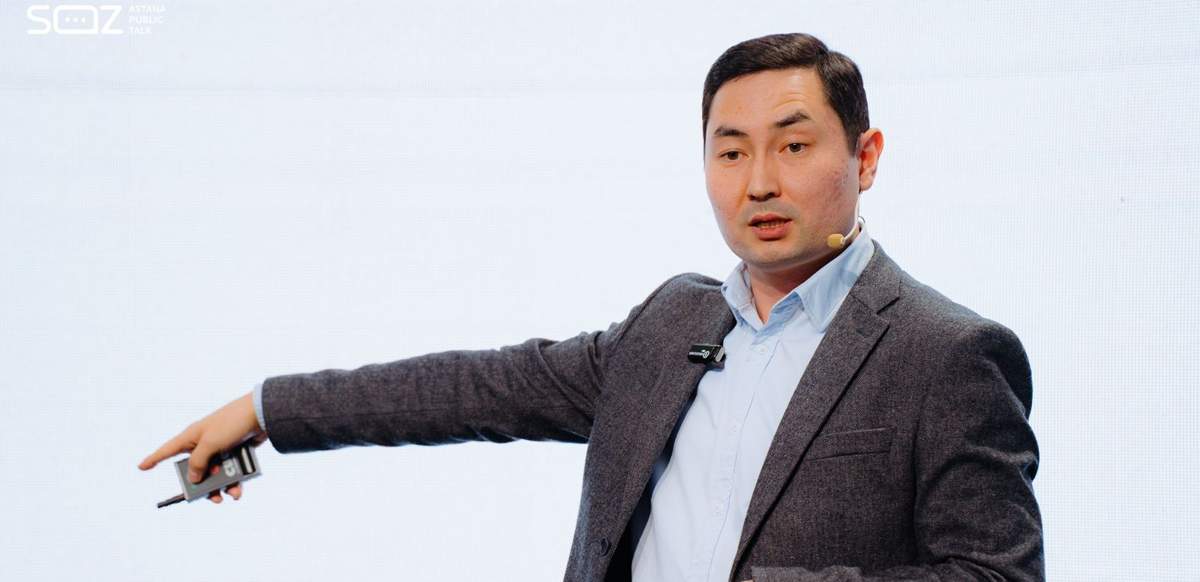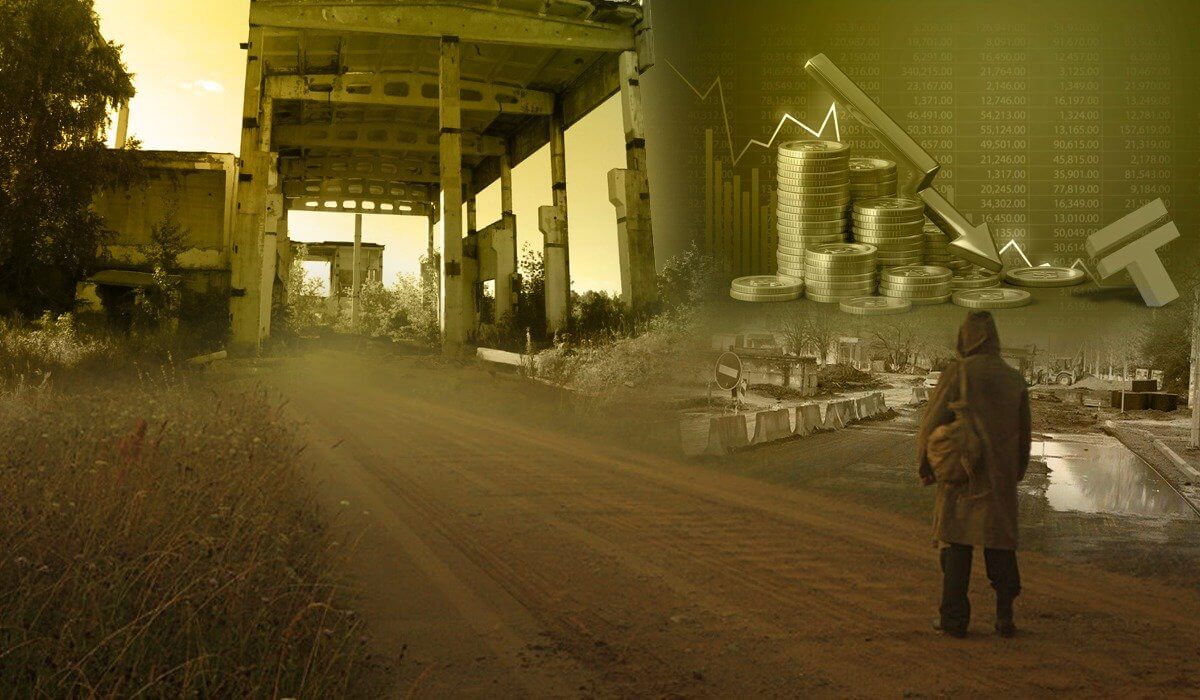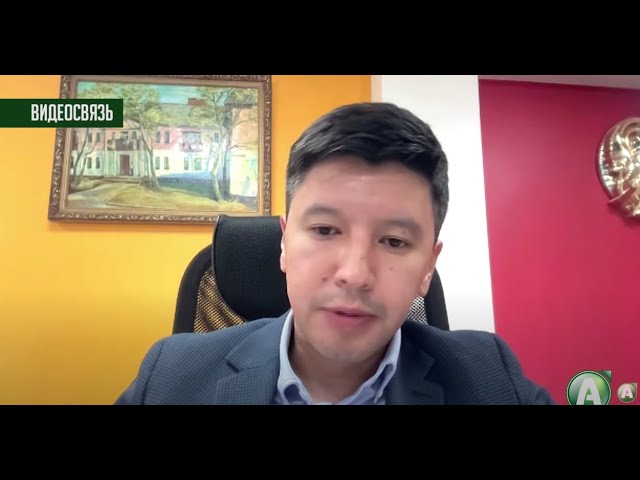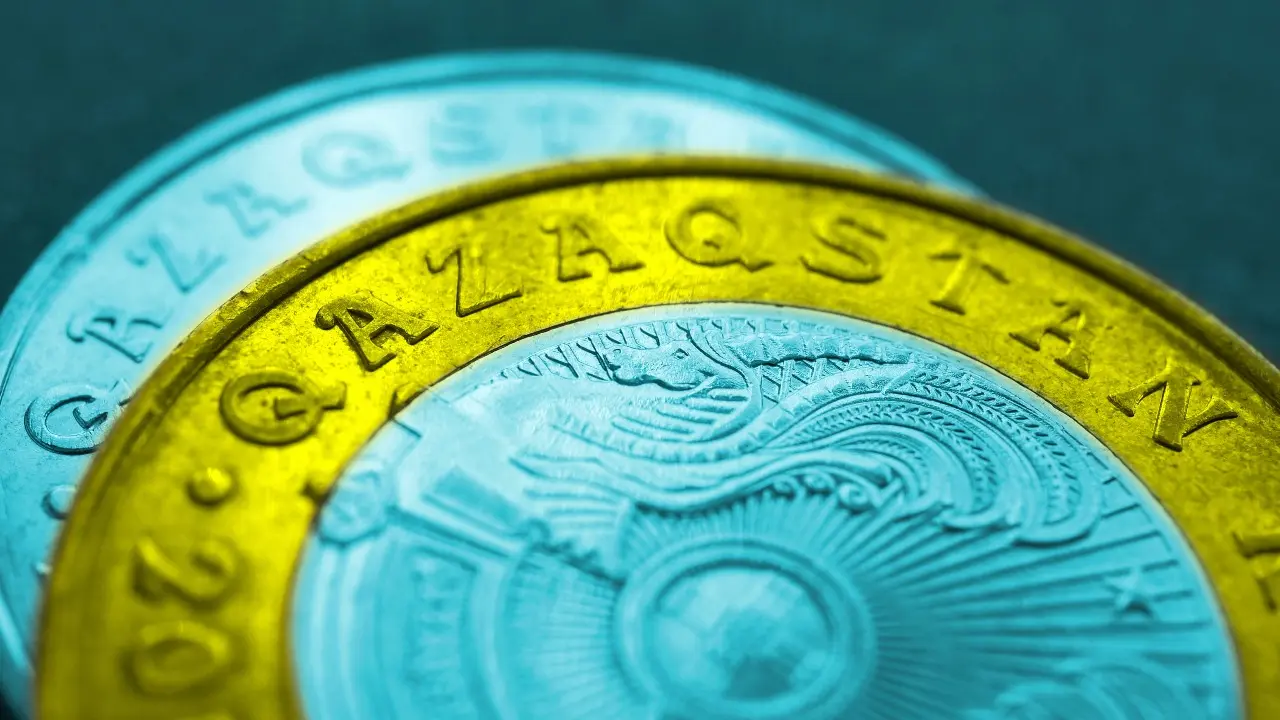Recently, the World Bank called 2012-2022 a "lost decade" for the Kazakh economy. The analysts of the financial Institute supported their conclusions with graphs of the slow growth of the country's GDP, and other important indicators for the country's economy. But the piquancy of the situation is that it was during these years that such budget-expensive programs as Nurly Zhol, accelerated industrial and innovative development and many others fell in Kazakhstan. Judging by the conclusions of World Bank analysts, trillions of tenge were spent on these programs in vain. Who is to blame for these useless expenses? And are there any hints that we have finally got out of the economic impasse and found a new path of development? Or maybe the World Bank has made a mistake in something, and Kazakhstan is developing quite successfully? The Voice of the People discussed these issues with economists.
What did the World Bank say?
At the dawn of independence, according to analysts of the World Bank, Kazakhstan carried out a number of successful market reforms and up to 2008 they "dragged" the country's economy forward. But then the growth of Kazakhstan's economy slowed down, and in 2012-2022, a slowdown in productivity growth of various companies was recorded from 4.5% to 0.9% per year.
The modernization of companies, the efficiency of the distribution of goods, as well as entrepreneurial activity have slowed down.
According to World Bank analysts, the years from 2012 to 2022 can be called a "lost decade" for the Kazakh economy. As for the various state programs that Kazakhstan was actively developing at that time, they, according to the World Bank, only made things worse.
"The predominance of extensive government support has probably inadvertently contributed to the emergence of a large number of zombie companies that barely survive and have no motivation to expand," the World Bank analysts wrote.
The World Bank's outlook for Kazakhstan is cautiously optimistic for the future. They believe that Kazakhstan's economic growth will slow to 3.4% in 2024 and then return to 4.5-5% in 2025, mainly due to oil production.
Meanwhile, the Government of Kazakhstan has more ambitious plans for the coming years. Firstly, by 2029, the country's GDP should double from the current $225 billion to $450 billion, and secondly, the economy should grow by at least 6% annually.
An investor? Show me the contract!
Doctor of Economics, Professor Bauyrzhan Isabekov considers the planned indicators to be very ambitious and little achievable.
"The state of Kazakhstan's economy is determined by several factors. The first of which is resource intensity. The material and technical base is outdated and therefore the cost of manufactured products is uncompetitive. The second is the raw materials orientation. The riches in our bowels should belong to the people and God, but completely different personalities benefit from them," the professor recalls.

Photos from social networks
In recent years, there have been weak attempts to equalize the situation, for example, it was announced that it intended to review the contracts of large subsoil users concluded back in the 90s. And, as Bauyrzhan Isabekov suggests, when this is done, it will be possible to count on the gradual growth of the Kazakh industry.
"There are already Kazakhstani service companies that are able to provide a much wider range of services to foreign investors than it is. It's just that this increase is not spelled out in the contracts. While. In addition, it is necessary to revise these contracts in such a way that as much as possible of the raw materials extracted in Kazakhstan's bowels are sent for processing inside the country. Small and medium-sized businesses should be involved in this as much as possible. Therefore, I believe that an agreement on mandatory cooperation with smaller ones should be concluded with every large businessman working in our country," he says.
At the same time, as the economist emphasizes, it is unlikely that in 5 years it will be possible to do what it was not possible to do in 30 years. After all, this requires both political rigidity and additional investments. But at least we can hope that Kazakhstan will no longer have "lost decades".
The state should go out of business
Askar Kysykov, Executive Director of the TALAP Center for Applied Research, notes that the main "claim" of World Bank analysts to Kazakh decision–making centers is the lack of structural economic reforms.
But domestic experts have been saying the same thing for many years.
"The last government was mainly preoccupied with the anti–crisis agenda: the coronavirus pandemic, the situation in Russia and so on - the government reacted more to challenges rather than solving complex problems of Kazakhstan. Now, it seems to me, both business and society have an expectation that the new Cabinet of Ministers will carry out structural reforms and work for the benefit of the country's economy," the economist expresses cautious optimism.

Photo "The Voice of the people"
As Kysykov is sure, it is necessary to start with restoring order in budget planning: the lion's share of all public money goes to social spheres – education and medicine, but Kazakhstanis are still dissatisfied with them and complain about corruption. Therefore, something is clearly going wrong.
According to Askar Kysykov, the second important step towards the prosperity of the Kazakh economy should be to reduce the state's share in it.
"Now Samruk-Kazyna is managed by the government. It is not managed efficiently enough: the dividends they pay to the state are very low. At the same time, the level of cross-subsidization is high. They do not work on market principles. Therefore, we need to increase the efficiency of Samruk-Kazyna and simultaneously conduct decisive privatization," the economist says.
He recalls that a private investor who risks his own money has a much higher motivation than the state, so all programs for financing new industries should rely primarily on private business, and not on government support.
But even with all the right actions of the Cabinet, the result can be very slow.
"The task of doubling GDP in 5 years looks unrealistic. At the expense of what? Double the production of oil and metals? Grain production? This is not possible because resources are limited. There must be other sources of growth. In fact, the task is to create another economy – a non-primary one, which will exist in parallel with the raw materials we have. This requires large investments. And where to get them from – I have big questions and big doubts," sums up Askar Kysykov.
Our economy is sick and untreated
Economist, author of the book "The Economy of Kazakhstan. Myths and reality" Aidarkhan Kusainov fully agrees with the negative assessment of the World Bank. Moreover, as the expert suggests, we have a place to fall, because for many years Kazakhstan has been ill with the "Dutch disease".
"The high economic growth of the early noughties was due to the fact that in the 90s our industry was completely lying on its side. The factories were inactive, and then they began to be massively converted into shopping malls. And, of course, this "movement" went into development. But if our factories had been operating in the 90s, and then we would have fallen ill with the Dutch disease, then everyone would have seen it right away, because there would have been an economic downturn due to the shutdown of real production: industry is falling, but trade is growing, clearly something is going wrong," he says.
Thus, the entire growth of the Kazakh economy in the early 2000s was due to the exceptionally high exchange rate of tenge, which happened solely due to high oil prices.

Photos from social networks
"The years 2008 – 2009 were the moment of truth. The most correct thing at that time would have been to recognize the Dutch disease, to collapse the tenge more strongly. Yes, at the moment we would have had more obvious and complex consequences of the crisis, but we would have been able to rebuild our industry. But no one really wanted to be "treated", tenge was devalued not to 200 tenge per dollar, as I suggested, but to 150. And to support the business, various GPFIIR, Nurly Zhol, and so on were invented. In fact, we treated some symptoms of the Dutch disease, but not the disease itself," explains Aidarkhan Kusainov.
However, as the economist notes, there are no clear signals that would make it clear that the country has begun to be treated at least now: the tenge exchange rate is still much higher than it should be for the development of domestic business, and oil money that should be "isolated" from reality in the National Fund is actively spent on so that Kazakhstanis do not notice the underlying problems of the economy and industry.
And if nothing changes, then, as Aidarkhan Kusainov suggests, the day is not far off when World Bank analysts will release a report on the lost fifteen years and even on the lost twenty years for the economy of Kazakhstan.
In order to avoid this, according to the economist, it is necessary to take very unpopular measures among the people, including the devaluation of the tenge.
"Actually, I think it's time to stop measuring everything in dollars. We are a sovereign country, GDP should be calculated in our national currency. From the point of view of a normal consumer, let a dollar cost at least 1000 tenge, as long as there is enough tenge for everything in Kazakhstan. After all, our income is in tenge, prices are in tenge. And if you think in tenge, count in tenge, then the goals will be different: to keep inflation in tenge, to increase incomes in tenge. And so on," the economist explains his point of view.
Is it not as bad as the World Bank says?
Kuanysh Zhaikov, an economist and head of the DESHT Institutional Transformation Group analytical center, could argue with the conclusions of World Bank analysts.
"I would not agree that it was the worst decade, although according to macro indicators it looks like it. First, there were the 90s, when our entire economic system, which had been artificially maintained for decades, finally went bankrupt. Hyperinflation, unemployment, non-payment of salaries, shutdown of utilities, departure of 4 million people abroad, widespread crime... I do not know how to compare this with the quite prosperous 2010s. And in general, our independence is only 30 years old with pennies," he recalls.

Photo: bes.media
The economist attributes the economic downturn in recent years primarily to a decrease in the inflow of foreign investments into the subsoil use of Kazakhstan. In many ways, by the way, this was due not only to the personal desire of investors, but also to the policy of Kazakhstan itself, which stated that from now on the priority is processing, not raw materials. And non-primary sectors of the economy, as Kuanysh Zhaikov reminds, have been showing an increase of about 5% all these years.
"The fact that the effects of new factories are not visible to residents of post-industrial Almaty and Astana does not mean anything. There have been important changes in the places where they have opened. We have a large and scattered country, each "well" lives its own life. Yes, there were no new non-primary Tengiz and Kashagans, but this is unrealistic, frankly speaking. The potential of our non-primary exports is quite low, because we are not surrounded by the richest countries, to whom and what should we supply?", Kuanysh Zhaikov urges to turn off alarmist sentiments.
He also recalls the high level of digitalization in Kazakhstan, which is admired even by foreigners, and suggests adequately assessing other indirect factors of development.
"The birth rate boom. In the 90s, everything was so bad that the birth rate fell below the simple reproduction of the population. And now Kazakhstan ranks 1st in the world in terms of changing the structure of the population in favor of children. I am sure that data will be released soon that not only the poor segments of society give birth," says Zhaikov.
But even with such an optimistic view of Kazakhstan, the economist has little faith that our country will be able to double its GDP in 5 years. As he suggests, the President has set such a high bar for the government primarily to revive the discussion on further economic liberalization, because rapid growth cannot even be dreamed of if private business is suffocating from taxes and cannot cope with a competitor in the form of quasi-state companies.
Author: Анна Величко
Source: https://golos-naroda.kz/28011-10-let-ne-predel-skolko-eshche-mozhet-poteriat-kazakhstanskaia-ekonomika-1708652771/



